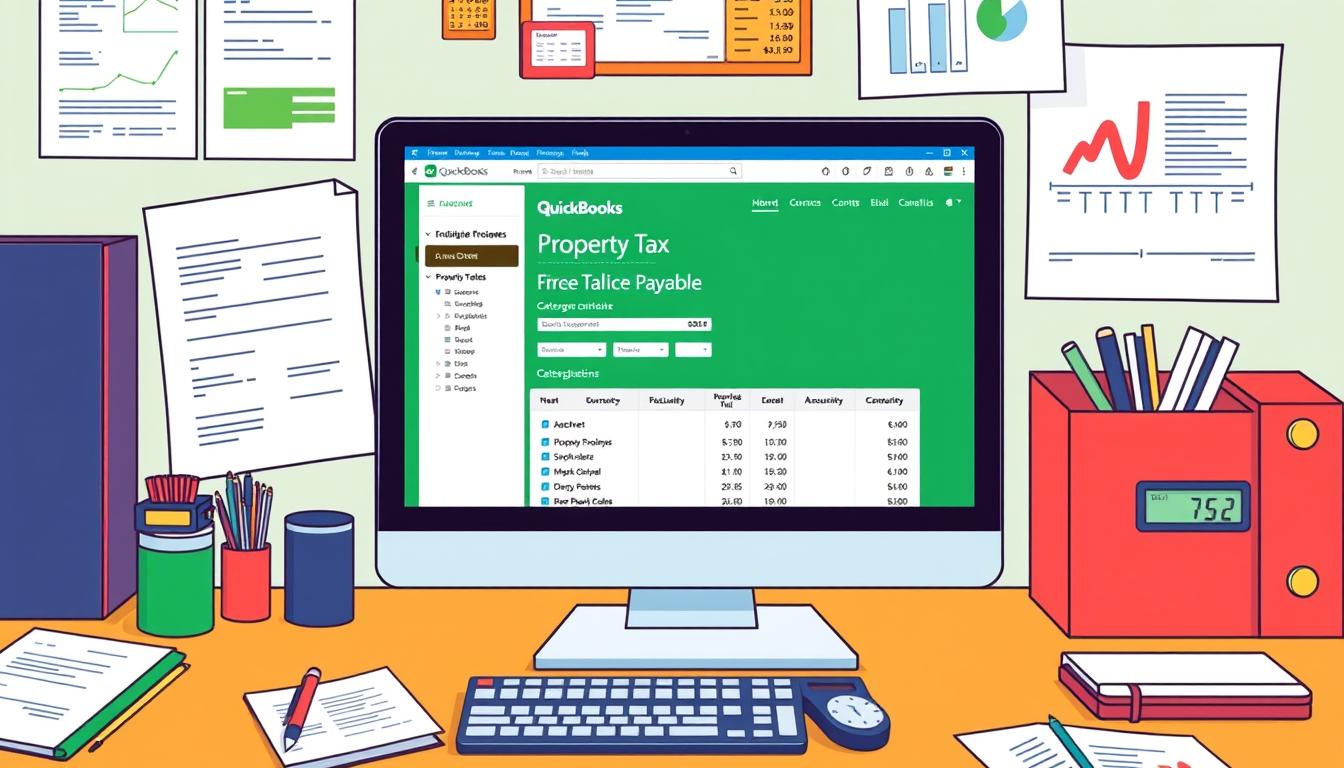
What is quickbooks used for

Table of Contents
QuickBooks is a top-notch accounting software made by Intuit. It’s perfect for small to medium-sized businesses (SMEs) to improve their financial management. This tool makes tasks like invoicing, tracking expenses, and tax prep easier. It helps users keep a close eye on their finances.
QuickBooks also offers customizable reports and various features. These are designed to meet different business needs. It’s a key tool for entrepreneurs aiming for financial success and growth.
Key Takeaways
- QuickBooks is a vital tool for efficient financial management.
- It simplifies invoicing and streamlines accounting tasks.
- The software is particularly beneficial for small businesses.
- Customizable reports provide insights into financial health.
- QuickBooks supports tax preparation and compliance.
Introduction to QuickBooks
QuickBooks was launched in 1983 and has become a key tool for small businesses. It offers effective accounting solutions. This introduction shows how QuickBooks has grown in popularity.
QuickBooks is easy to use, even for those without accounting knowledge. It has a user-friendly interface. This accounting software overview highlights its accessibility and powerful features for different industries.
It offers both desktop and online versions to meet various business needs. QuickBooks helps with invoicing, tracking expenses, and creating reports. This makes managing finances easier. It also keeps getting better with updates.
In short, QuickBooks is a reliable choice for financial management software. It has evolved to meet business needs, helping companies stay organized and grow.
Understanding QuickBooks Functionality
QuickBooks makes accounting easier for businesses of all sizes. It automates key tasks, saving time and effort. This software helps manage money owed and owed to the business, making sure payments are on time.
It also makes bank reconciliations simple. This helps keep financial records accurate and up-to-date. QuickBooks also handles payroll, ensuring payments are correct and taxes are paid on time.
Its financial reports give businesses a clear view of their performance. This helps make better financial decisions. QuickBooks lets users focus on growing their business, not just doing paperwork.
| Functionality | Benefits | Impact on Business |
|---|---|---|
| Accounts Receivable Management | Timely invoicing and payment reminders | Improved cash flow |
| Bank Reconciliation | Ensures accurate financial records | Reduced discrepancies |
| Payroll Processing | Streamlined employee payments and tax compliance | Enhanced employee satisfaction |
| Financial Reporting | Comprehensive insights and performance tracking | Informed decision-making |
Key Features of QuickBooks
QuickBooks offers a wide range of tools for managing your finances. It’s great for invoicing, billing, and tracking expenses. These features help make your financial tasks easier and improve your business’s performance.
Invoicing and Billing
QuickBooks lets you create and send invoices easily. You can make them look professional and clear. It also has automated billing to help track payments and manage cash flow better.
Setting up recurring transactions is a breeze. This cuts down on the work you need to do. Plus, you can get paid faster with online payment options.
Expense Tracking
QuickBooks makes tracking expenses simple. You can record and sort your business expenses easily. It even lets you attach receipts for easier tax reporting and financial analysis.
With a clear view of your expenses, you can make better decisions. This helps improve your business’s efficiency.
Who Uses QuickBooks?
QuickBooks users come from many backgrounds. It’s great for solo freelancers and small business owners in different fields. These include retail, construction, healthcare, and professional services. QuickBooks helps anyone manage their money well.
Accountants use QuickBooks to make their work easier and get financial reports on time. Small business owners use it for invoicing, tracking expenses, and keeping an eye on their finances. Startups find it key for budgeting and planning, helping them grow while keeping finances in check.
| User Profile | Industry | Key Needs |
|---|---|---|
| Freelancers | Creative services, consulting | Simple invoicing, expense tracking |
| Small Business Owners | Retail, hospitality | Inventory management, payroll services |
| Accountants | Finance, advisory | Advanced reporting, multiple client management |
| Entrepreneurs | Startups, tech | Budgeting, financial forecasting |
QuickBooks meets the needs of different users. It’s vital for small business accounting and freelancer accounting. It helps everyone manage their finances well.
Benefits of Using QuickBooks for Small Businesses
QuickBooks offers many benefits for small businesses. It makes accounting easier and boosts productivity. Here are some key advantages QuickBooks provides to small business owners.
Simplified Accounting Process
QuickBooks automates key accounting tasks. This means less manual work and fewer mistakes. It helps owners focus on growing their business instead of paperwork.
Time Management Advantages
Time is precious for small businesses. QuickBooks helps manage it well. It streamlines invoicing, tracks expenses, and provides detailed reports. This lets owners spend more time on planning and less on paperwork.
| Benefit | Description | Impact on Business |
|---|---|---|
| Simplified Accounting | Automation of tasks reduces manual effort | Increased accuracy and focus on core activities |
| Improved Time Management | Streamlined invoicing and reporting | More time for strategic initiatives |
| Cost-Effectiveness | Affordable monthly plans | Lower overhead costs for small businesses |
| Scalability | Can grow with business needs | Adaptable solutions for changing demands |
Overview of QuickBooks Software Versions
QuickBooks offers many software versions for different business needs. QuickBooks Online is a cloud-based platform that you can access from any device with internet. It lets users manage their accounting tasks from anywhere, offering the flexibility many businesses need today.
QuickBooks Desktop is for those who like installed software. It’s familiar to users who prefer stability and traditional desktop environments. QuickBooks Desktop offers robust functionality and advanced reporting options, along with solutions for specific industries.
QuickBooks also has versions for different industries, like retail, manufacturing, and non-profits. These versions have features tailored to each industry’s needs. They help businesses streamline their workflows effectively.
To help users choose the right version, a comparison table shows the main differences between QuickBooks Online and QuickBooks Desktop. It covers functionality, accessibility, and pricing.
| Feature | QuickBooks Online | QuickBooks Desktop |
|---|---|---|
| Accessibility | Cloud-based, accessible from any device | Installed software on a single computer |
| Multi-user Capability | Multiple users can log in simultaneously | Limited users depending on the version |
| Updates | Automatic updates included | Manual updates may be required |
| Price Range | Monthly subscription model | One-time purchase with optional annual support |
| Industry-specific Versions | Limited availability | Robust options available for several industries |
How QuickBooks Helps with Tax Preparation
QuickBooks makes tax preparation easier for businesses. It keeps all financial records up-to-date and easy to find. This helps avoid costly mistakes during tax season.
It lets users track deductible expenses all year. This makes it easier to know which costs to claim when taxes are due. QuickBooks also creates detailed reports needed for tax preparation.
Using QuickBooks can make tax time less stressful. Businesses can organize their financial records well and prepare for tax submissions. This saves a lot of time and money. QuickBooks is easy to use and helps manage tax obligations better.
Integrating QuickBooks with Other Tools
QuickBooks works better when connected to other business tools. These connections make things more efficient and easier to manage.
E-commerce Integration
Integrating QuickBooks with e-commerce sites like Shopify and WooCommerce is a big plus. It lets businesses track sales and manage stock in real-time. This way, they can see how they’re doing financially without having to enter data manually.
QuickBooks gives insights into sales and stock levels. This helps business owners make smart choices.
CRM Software Compatibility
QuickBooks and CRM software, like Salesforce, work well together. This means sales data goes straight into QuickBooks. It makes billing and tracking revenue more accurate.
Companies get better at talking to customers. They can see sales and payments in one place. This leads to stronger customer relationships and loyalty.
QuickBooks for Freelancers and Entrepreneurs
QuickBooks is a great tool for freelancers and entrepreneurs. It helps with managing money in a way that’s easy to understand. It makes invoicing and tracking expenses simple. This lets freelancers focus on their work while keeping their finances in order.
QuickBooks has features for tracking time and managing projects. This helps freelancers see how much time they spend on projects. It also helps them bill clients more accurately.
Many entrepreneurs use QuickBooks to make their accounting easier. They share stories of how it helps:
- John, a graphic designer: Uses invoicing tools to bill clients fast, cutting down on wait times.
- Sarah, a freelance writer: Tracks her expenses well, giving her a clear view of her monthly costs.
- Mark, an independent contractor: Manages projects for multiple clients easily.
Using QuickBooks gives freelancers and entrepreneurs confidence in their money management. It’s a good choice for those who want to work more efficiently.
QuickBooks: A Cost-Effective Solution
QuickBooks pricing has many options for small businesses. It’s affordable, helping both new and established companies manage their finances well. The pricing is set up in tiers, so everyone can find something that fits their needs.
QuickBooks is cheaper than hiring an accountant. It saves money and offers great accounting tools. Users can track expenses, send invoices, and see detailed reports. This helps them understand their financial situation better.
Here’s why QuickBooks is valuable:
- Scalability: It grows with your business, offering features that meet your changing needs.
- User-friendliness: QuickBooks is easy to use, so you don’t need a lot of training to get started.
- Support: It has strong customer support, helping you solve problems and get the most out of it.
Using QuickBooks daily can make your business more productive. It helps you manage your accounting tasks well.
Common QuickBooks Challenges and Solutions
Many users face QuickBooks challenges that slow down their work. Issues like data entry mistakes, hard navigation, and technical problems are common. Finding ways to solve these problems is key to staying efficient.
To avoid data entry errors, it’s important to double-check your work. QuickBooks has an audit trail feature to spot mistakes. Learning how to navigate the software well can also help. This makes using QuickBooks less stressful.
When you hit a technical snag, customer support is there to help. QuickBooks has a lot of resources, like a help center and live chat. You can also join forums to share tips and find solutions.
The table below shows common problems and how to fix them in QuickBooks:
| Challenge | Solution |
|---|---|
| Data Entry Errors | Use audit trails and double-check entries before saving. |
| Navigation Difficulties | Explore the help section and familiarize oneself with tutorials. |
| Technical Issues | Contact customer support or utilize community forums for assistance. |
Knowing how to handle these QuickBooks challenges helps users stay on track. It makes accounting work smoother and more efficient.
Getting Started with QuickBooks
Starting with QuickBooks needs careful planning. You must create an account that fits your business. There are many versions and plans to choose from. This guide will help you set up your account, preferences, and initial settings for a smooth experience.
Setting Up Your QuickBooks Account
Setting up your QuickBooks account involves several steps:
- Choose Your Subscription Plan: Pick a plan that matches your business size and needs.
- Account Creation: Start by providing your email and business details.
- Customize Your Preferences: Adjust settings to fit your workflow, like invoice formats and reports.
- Import Data: Move your financial data from other systems or spreadsheets into QuickBooks.
- Link Bank Accounts: Connect your bank accounts for easier transaction tracking and better financial accuracy.
By following these steps, you’ll have a smoother transition to QuickBooks. Setting up correctly from the start boosts your efficiency and productivity in managing finances.
Conclusion
QuickBooks is a key tool for small businesses and freelancers to manage their money well. It offers many features like invoicing, tracking expenses, and preparing taxes. This makes important business tasks easier.
Using QuickBooks helps users make their accounting work smoother. This leads to better business performance and growth. It’s important for keeping finances in check and making smart decisions.
QuickBooks does more than just keep books. It helps users grow and succeed in their fields. It’s a smart choice for anyone wanting to improve their financial plans. Using QuickBooks can really boost a business’s success.
FAQ
What is QuickBooks used for?
QuickBooks is a tool made by Intuit for managing business finances. It helps with tasks like invoicing, tracking expenses, and reporting. It’s made for small businesses to make accounting easier and help with financial management.
What are the key features of QuickBooks?
QuickBooks has important features like invoicing and expense tracking. Users can make custom invoices and track payments. It also has tools for financial reports to understand a company’s financial health.
Who typically uses QuickBooks?
QuickBooks is for many people and businesses. Freelancers, small business owners, and medium-sized companies use it. It works well in many industries like retail, healthcare, and construction.
How does QuickBooks help with tax preparation?
QuickBooks makes tax preparation easier by keeping records automatically. It tracks deductible expenses and makes reports like profit and loss statements. This simplifies tax season and reduces stress.
What are the benefits of using QuickBooks for small businesses?
QuickBooks helps small businesses by automating accounting. This saves time and lets owners focus on growing their business. It also makes invoicing and expense tracking easier.
What software versions of QuickBooks are available?
QuickBooks has different versions like QuickBooks Online and QuickBooks Desktop. Online is for cloud access, and Desktop is for traditional users. There are also versions for specific industries like retail and manufacturing.
How can QuickBooks integrate with other tools?
QuickBooks works well with other business tools. It connects with e-commerce platforms like Shopify for sales tracking. It also links with CRM software like Salesforce for better customer relations.
What challenges might users face when using QuickBooks?
Users might face issues like data entry errors or finding their way around. But, there’s help available. Customer support, troubleshooting tips, and forums can solve these problems and improve the QuickBooks experience.
How do I get started with QuickBooks?
Starting with QuickBooks involves creating an account and choosing a plan. Then, set up your preferences. Link bank accounts and import data for smooth financial management. A guide can help new users set up easily.
- Tags: intuit quickbooks, intuit quickbooks login, intuit quickbooks online, quickbook, quickbooks, quickbooks accounting software, quickbooks customer service, quickbooks customer service number, quickbooks desktop, quickbooks desktop 2024, quickbooks log in, quickbooks login, quickbooks login online, quickbooks online, quickbooks online accountant, quickbooks online accounting, quickbooks online customer service, quickbooks online login, quickbooks online pricing, quickbooks payroll, quickbooks self employed, quickbooks software, quickbooks support phone number, quickbooks time, quickbooks time login, quickbooks workforce
Top Products
- QuickBooks Desktop Pro 2024 US Version
- QuickBooks Desktop Pro 2023 US Version
- QuickBooks Desktop Pro 2022 US Version
- QuickBooks Desktop Premier 2024 US Version
- QuickBooks Desktop Premier 2023 US Version
- QuickBooks Desktop Premier 2022 US Version
- QuickBooks Desktop Accountant 2024 US Version
- QuickBooks Desktop Accountant 2023 US Version
- QuickBooks Desktop Enterprise 2024 US Version
- QuickBooks Desktop Enterprise 2023 US Version
- QuickBooks for Mac 2024
- QuickBooks for Mac 2023
Popular Posts

How to categorize property tax payable in quickbooks online
Knowing how to categorize property tax payable in QuickBooks Online is key for keeping your financial records right. Property tax payable is the amount your business owes in property taxes. It can greatly affect your financial health. By learning to categorize property tax well, businesses can make sure their financial statements show their true obligations.
This knowledge is crucial as we dive into the steps and best practices for handling property tax payable in QuickBooks Online.
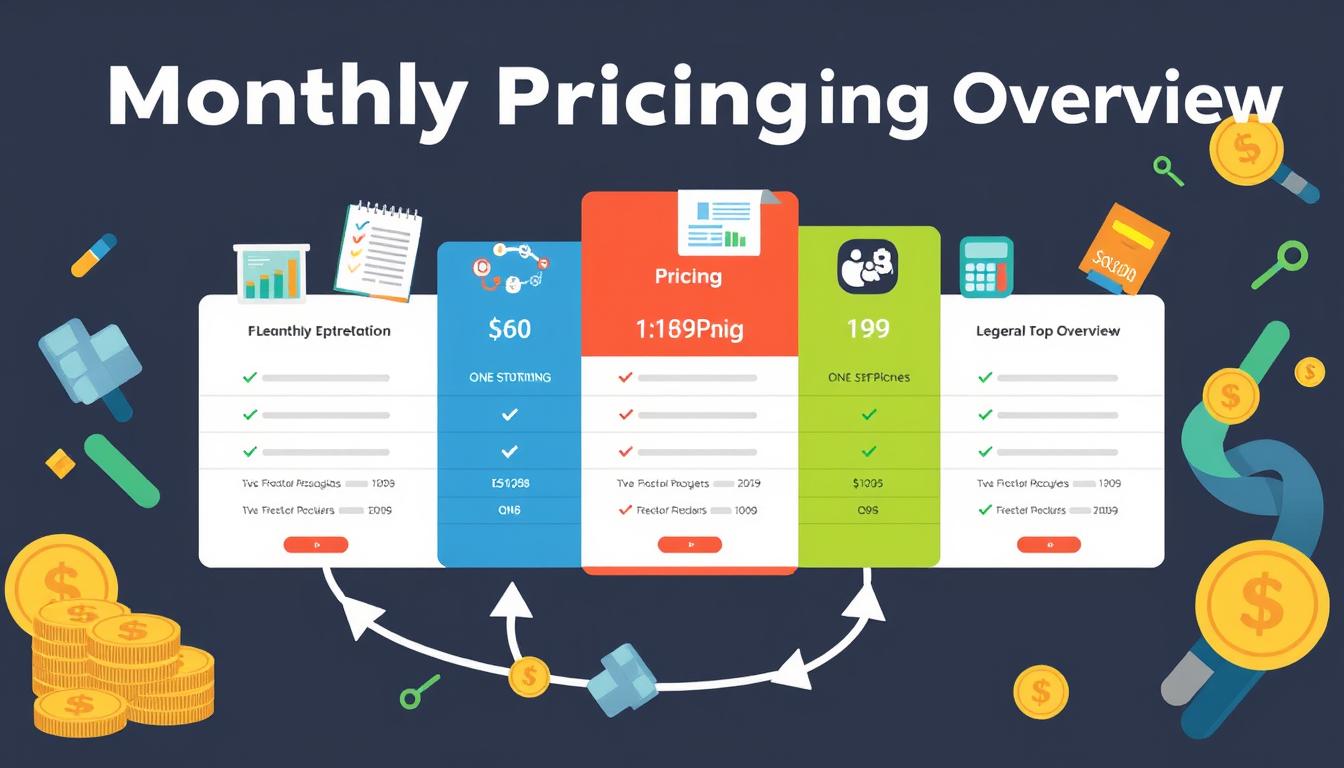
How much is quickbooks per month
Many users want to know the QuickBooks pricing for monthly costs. QuickBooks has various plans for different business needs. This lets users pick the right plan for their financial management.
What affects the QuickBooks monthly cost includes the QuickBooks edition, payment frequency, and extra features. This guide will explain the details of these plans. It will help you understand the costs of using QuickBooks for your business.

How does quickbooks work
QuickBooks is a key accounting software made by Intuit. It helps businesses manage their finances well. It works on a cloud-based platform, so users can access their financial data from anywhere.
This software makes tasks like bookkeeping, invoicing, and financial reporting easier. In this article, we’ll look at QuickBooks’ main features, its users, benefits, and challenges. We aim to help you understand how it can improve your financial management.

How do you record insurance payment in quickbooks
Recording insurance payments in QuickBooks is key for good insurance accounting. It helps business owners manage their money well and keep their books right. This is vital for the health of any business.
In this guide, we’ll show you how to record insurance payments easily. We’ll use QuickBooks guides and tips from accounting experts. This way, you can keep your financial records up to date.
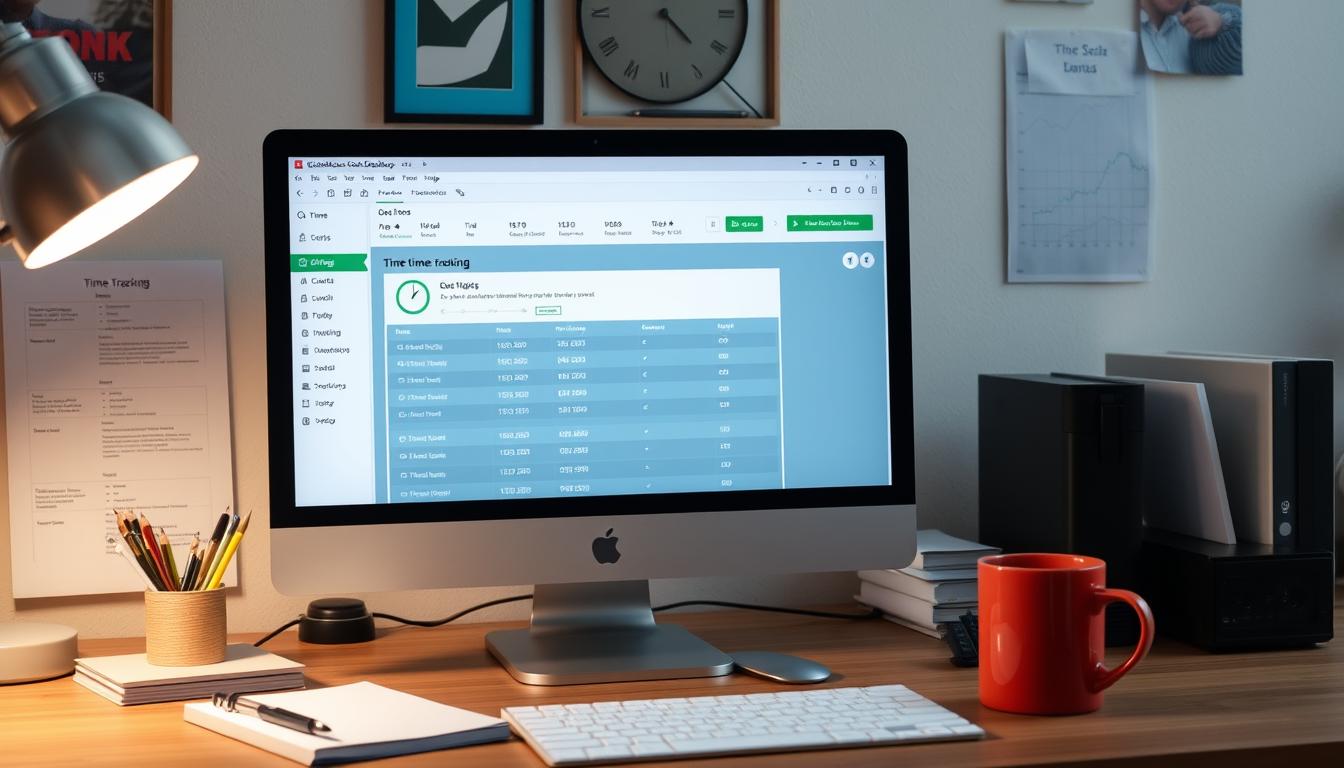
How do you clock in hours in quickbooks desktop
In today’s fast-paced world, tracking time well is key for good payroll management. This article will show you how to clock in hours in QuickBooks Desktop. It’s a top accounting software that makes managing tasks easier. By learning how to track time, businesses can work better and pay employees right.
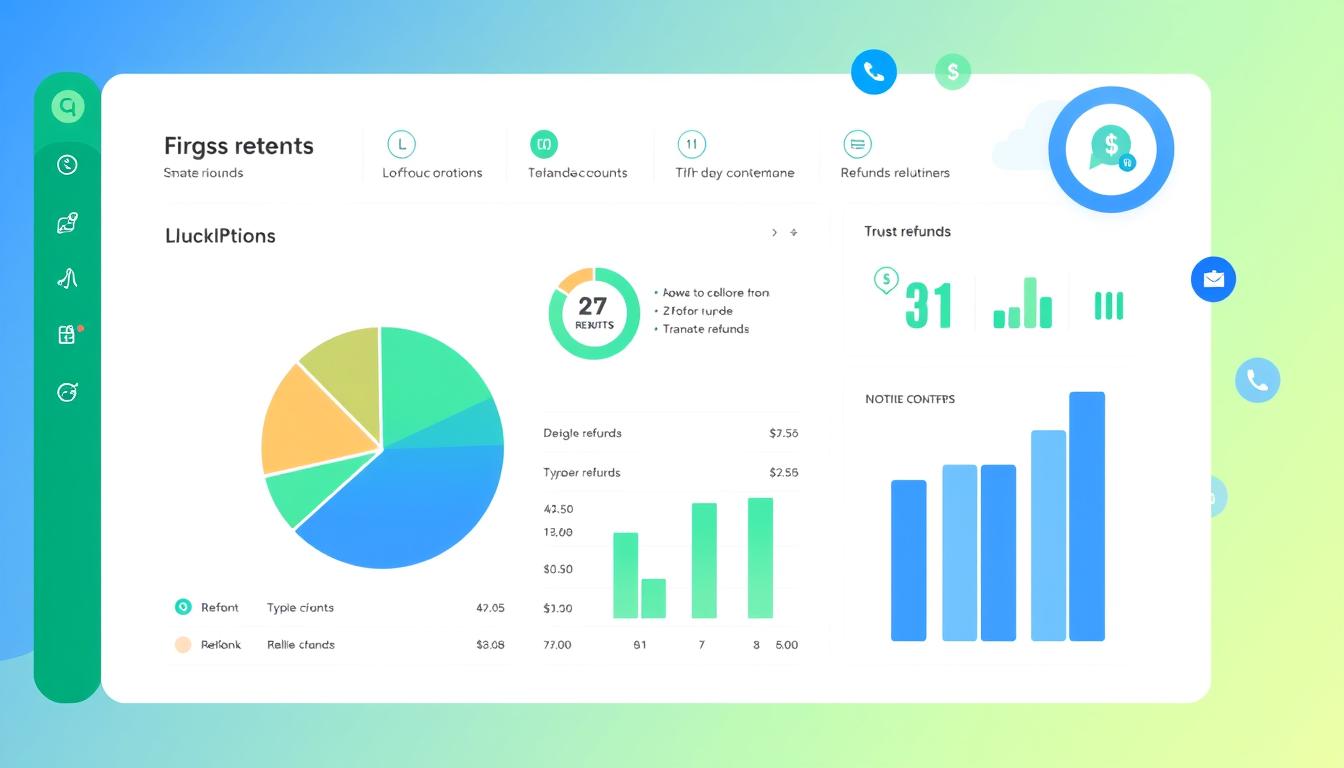
How are refunds categorized in quickbooks online
Knowing how to categorize refunds in QuickBooks Online is key for good financial management. It’s important to record refunds correctly to keep your finances clear. Businesses of all sizes can benefit from knowing how to do this right.
This knowledge helps make your financial records clear and accurate. It’s a basic step that can make a big difference.

Does quoteiq accept quickbooks online payments
Payment solutions are key in today’s business world. Many are looking into how platforms like QuoteIQ can improve their invoicing. A big question is: does QuoteIQ accept QuickBooks Online Payments? This article explores how QuoteIQ and QuickBooks Online Payments work together.
This shows how important it is to have good payment integration. It helps with cash flow and makes operations smoother. We’ll look at the benefits of using QuoteIQ with QuickBooks Online Payments. Plus, we’ll show you how to set it up.
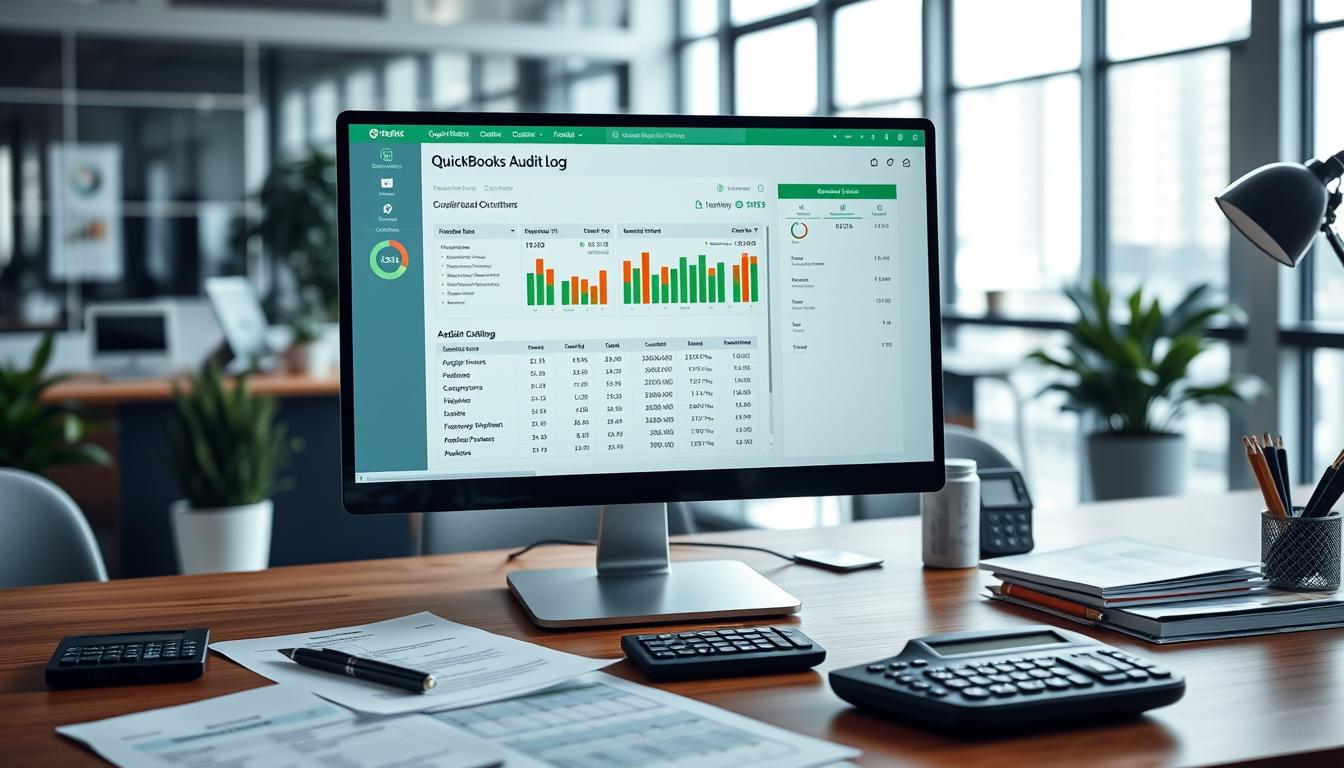
Can you delete history under audit log quickbooks online
It’s important to know if you can delete entries from the audit log in QuickBooks Online. This is key for businesses that focus on financial accuracy and follow the rules. The audit log QuickBooks Online keeps a detailed history of changes to financial data. This ensures that all account activities are recorded clearly.
By tracking these changes, the audit log is crucial for good financial management. We will look into why the audit log matters and what happens if you try to delete its records. We’ll see how these actions impact your QuickBooks history.
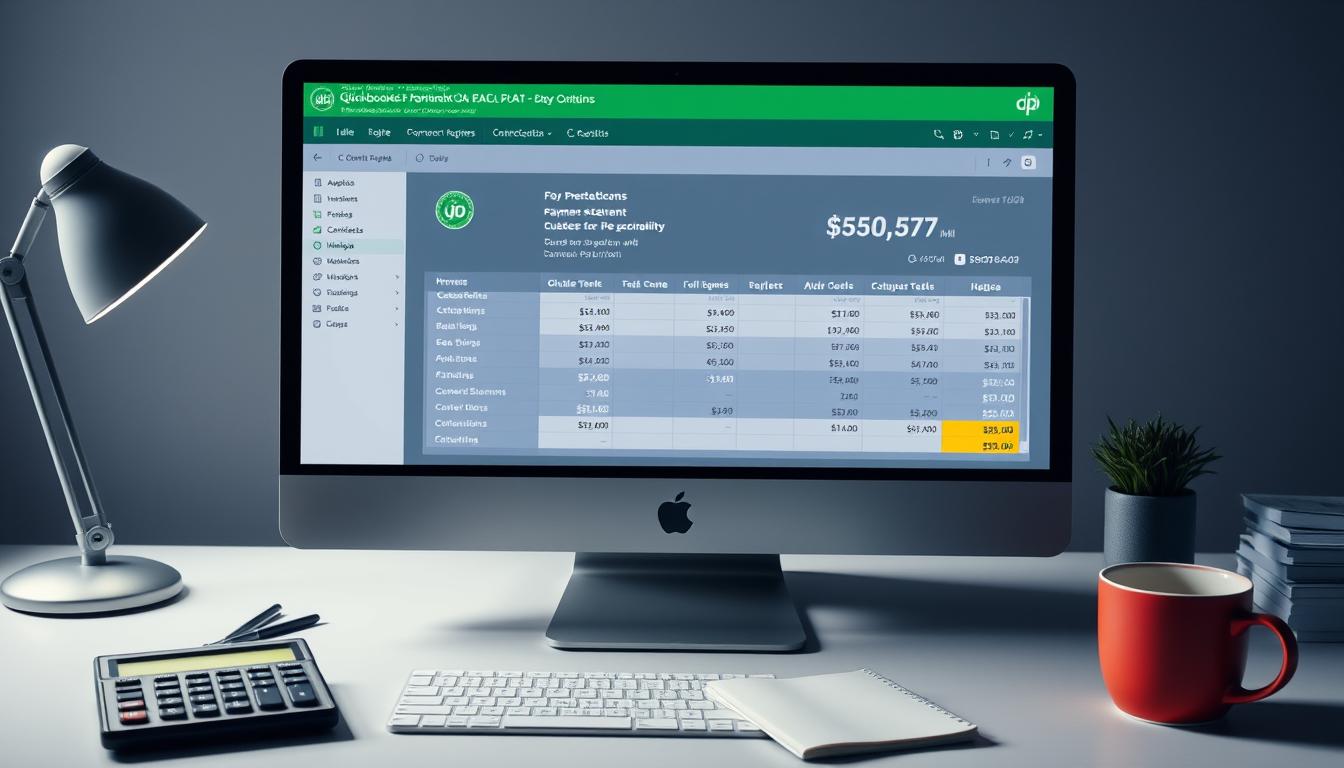
Can quickbooks recievepayment by statements rather that individual invoices
In today’s fast-paced world, businesses need quick and easy ways to handle payments. Many QuickBooks users wonder if they can pay by statements instead of invoices. This method makes accounting simpler for companies.
Using payment statements has big advantages over traditional invoices. QuickBooks helps businesses manage payments better. This article will show you how payment statements work in QuickBooks and how they can help your business.
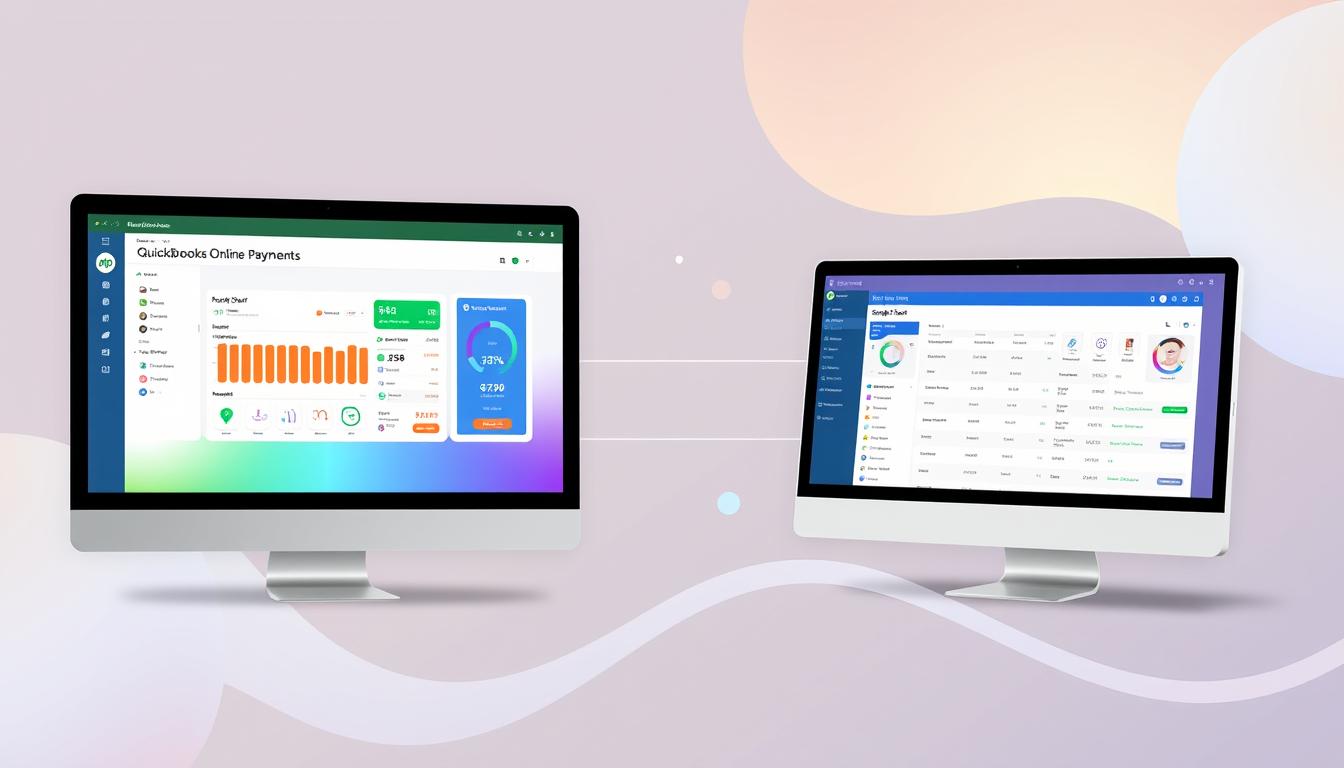
Can quickbooks online payments work with simple start
For small business owners, the question of whether QuickBooks Online Payments and QuickBooks Simple Start can work together is key. This integration is vital for managing finances effectively. It helps users handle transactions smoothly while using a basic accounting tool for solo businesses.
QuickBooks Online Payments lets users take payments online, making cash flow management easier. In this article, we explore how these two tools can boost efficiency for small businesses.